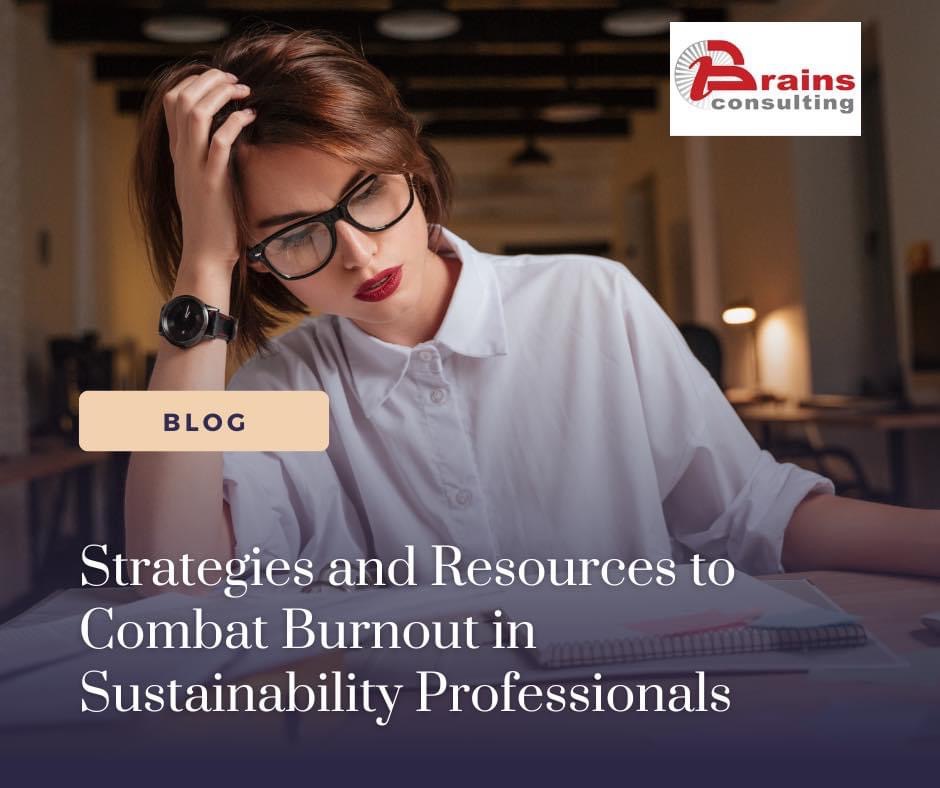🟥 Strategies and Resources to Combat Burnout in Sustainability Professionals
In the demanding field of sustainability, professionals often face high levels of stress and the risk of burnout.
Balancing the urgency of environmental issues with the pressures of daily work can be challenging. This article explores essential strategies and resources to help sustainability professionals find support, manage stress, and maintain their well-being, ensuring they can continue making a positive impact without compromising their own health.
1. Peer Networks
Engaging with peer networks is a powerful way to combat feelings of isolation and burnout. By connecting with fellow sustainability professionals, you open up opportunities to share experiences, advice, and coping strategies. Such networks can be found within professional associations, online forums, or local meet-up groups. Regular interaction with peers who understand the unique challenges of sustainability work can provide both emotional support and practical solutions to common problems.
2. Professional Help
The stress of working in sustainability can sometimes be overwhelming, making it essential to seek professional help when needed. Mental health professionals, especially those experienced in high-pressure careers, can offer tailored strategies to manage stress and prevent burnout. Remember, seeking help is a sign of strength and a crucial step in maintaining your effectiveness in the field.
3. Self-Care Routines
Establishing a self-care routine is vital for preventing burnout. Set aside time for physical activities, hobbies, and relaxation techniques such as meditation or yoga. These practices not only improve your physical health but also help clear your mind and reduce stress. Taking care of yourself is not selfish—it is necessary for sustaining your ability to make a difference in sustainability.
4. Time Management
Effective time management is key to avoiding burnout. Prioritize tasks, set realistic goals, and create boundaries around work hours to reduce stress and prevent feeling overwhelmed. Learning to say no to additional responsibilities when your plate is full is a critical skill that can help maintain a healthy work-life balance.
A useful tool for prioritizing tasks is the Eisenhower Matrix:
Urgent and important tasks: These need immediate attention.
Important but not urgent tasks: Important for long-term goals but can be scheduled for later.
Urgent but not important tasks: Require immediate attention but do not significantly contribute to long-term goals; these can be delegated.
Neither urgent nor important tasks: Do not contribute to your goals and can be eliminated or ignored.
5. Continuous Learning
Burnout can often stem from a feeling of stagnation. Engaging in continuous learning and development can reignite your passion for sustainability and provide a sense of achievement. Whether it’s attending workshops, enrolling in courses, or staying updated with the latest industry trends, continuous learning keeps your skills sharp and your motivation high. Learning new things can reignite your enthusiasm for your work and remind you of the positive impact you’re making, while staying up-to-date with trends and technologies ensures you remain a valuable asset and opens doors for career advancement.
6. Supportive Leadership
For those in leadership positions, fostering a supportive environment for your team is essential in preventing burnout. Encourage open communication, promote work-life balance, and recognize the hard work your team puts in. As a leader, setting an example by prioritizing your own well-being can create a culture where self-care is valued, reducing the likelihood of burnout within your team.
n the quest to create a more sustainable world, it's crucial for sustainability professionals to prioritize their own well-being. By leveraging peer networks, seeking professional help, maintaining self-care routines, managing time effectively, engaging in continuous learning, and fostering supportive leadership, they can prevent burnout and sustain their passion for their work.
Remember, taking care of yourself not only benefits you but also enhances your capacity to drive positive change in the field of sustainability.


Brains Consulting SRL
str. J.H. Pestalozzi, nr. 3-5, cam 207
Timisoara, Romania
sediul social:
str. Dreptatea, nr.16, ap. 11
Timisoara, Romania
Email: office @ brainsconsulting.ro
Phone: 0040 729 478762
Web Design by Dow Media | Gazduire Web BanatHost.ro